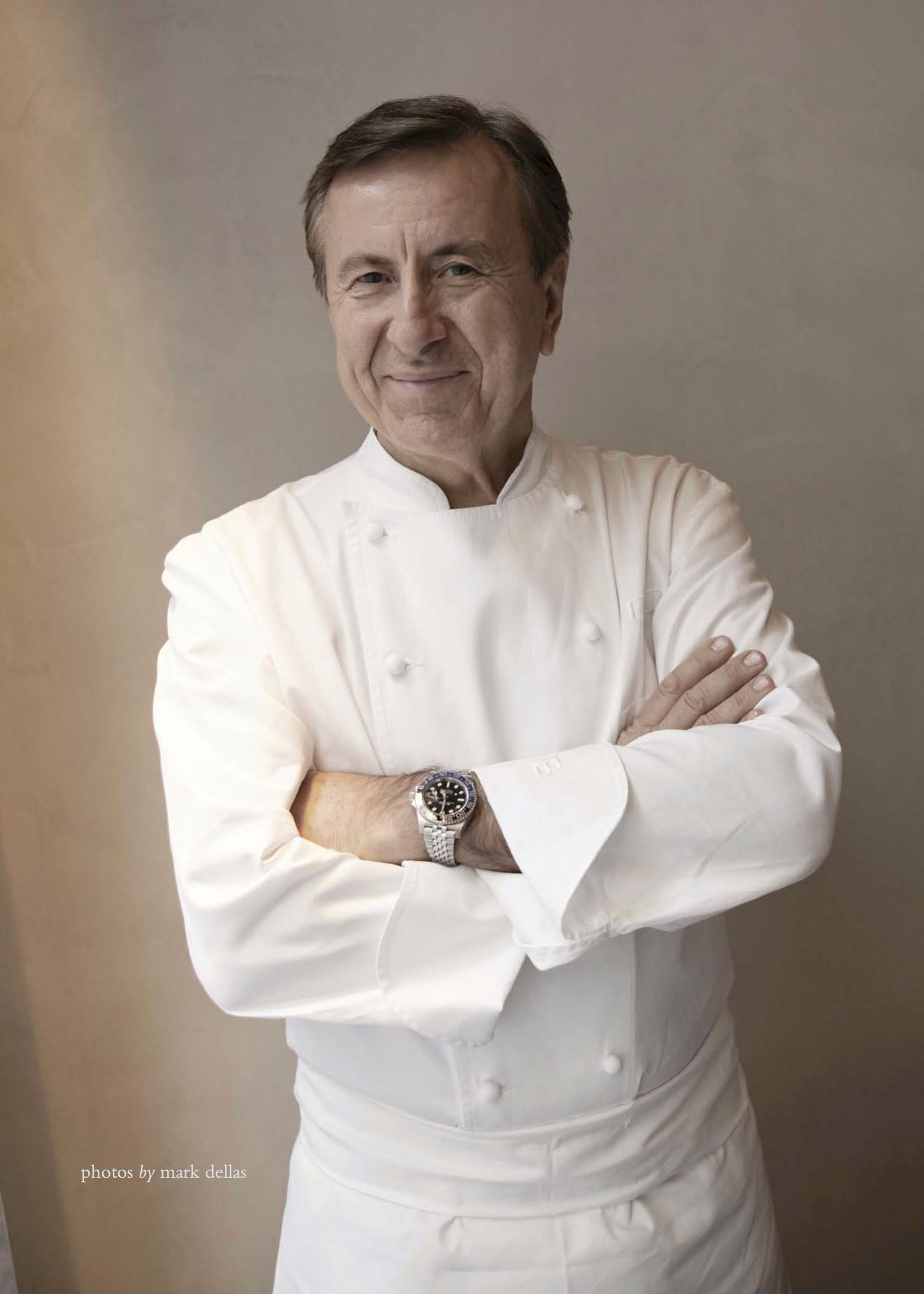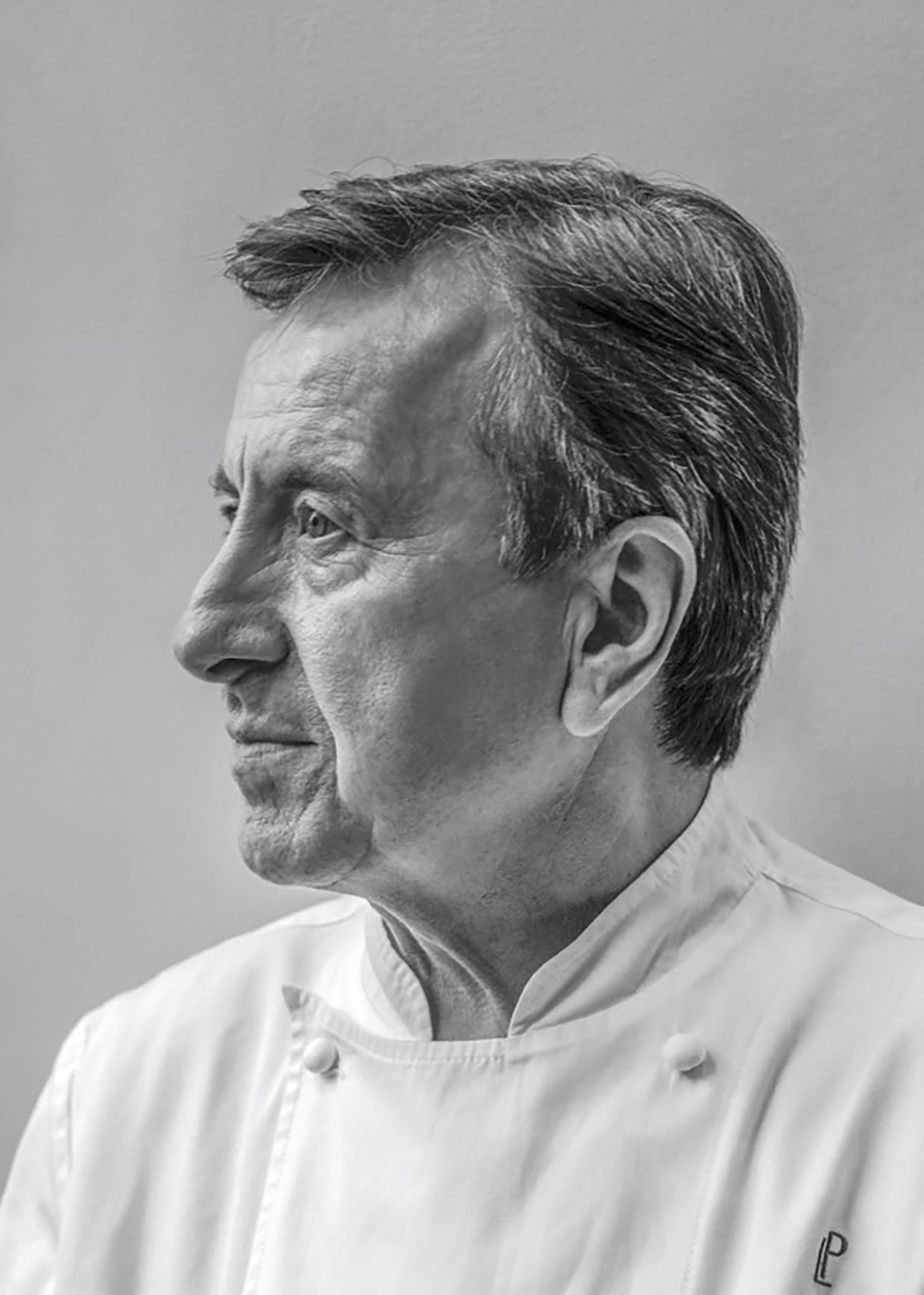boulud’s paradox
When Daniel Boulud was 14 years old, he didn’t like school and didn’t want to work on his family’s farm, so his parents got him a job in a restaurant. Fifty-two years later, Boulud is considered America’s foremost French chef, with a stable of restaurants in New York City and around the world.
His eponymous establishment Restaurant Daniel is one of only a few restaurants in Manhattan to earn a two-star Michelin rating. His latest venture, Le Pavillon, which opened in 2021 in One Vanderbilt, a new skyscraper next door to Grand Central Terminal, is an elegant oasis of foliage in midtown Manhattan.
Much has been written about Boulud–a Google search of his name yields 726,000 results. And much of what is written, appropriately, consists of restaurant reviews. “A great restaurant is like a racehorse,” observed Ruth Reichl, the famed former restaurant critic at The New York Times, in 1994, in her first review of Restaurant Daniel, “it may take a while to discover its style, but once it does the ride is exhilarating.”
She gave it the highest rating: four stars.
(Boulud cites Reichl’s review as a milestone in his career as an independent restauranteur.)
Yet, it isn’t just the mastery of food that facinates one about Boulud; it’s how he got to where he is today. How he bridged the gap between an aimless teenager growing up in southeastern France to a celebrated restauranteur overseeing an ever-expanding archipelago of the world’s finest French restaurants.
When you meet Boulud, the first thing that strikes you is his unassuming nature. He’s friendly and present. Warm and engaging. Someone to whom hospitality isn’t a formality, but instead a way of life.
We talked in the skybox at Le Pavillon. It’s a small, unanointed room overlooking the quiet beehive of precision and frenetic movement that is Le Pavillon’s kitchen. It’s the activity and extensive accoutrements of the kitchen below that underscores the paradox of Boulud–the juxtaposition of his professional stature against his humility and inviting demeanor.
To one who studies powerful people in powerful places, it isn’t an unfamiliar paradox. “If you start believing in your own greatness,” the performance artist Marina Abramovic once put it, “it is the death of your creativity.”
Indeed, in a roundabout way, Boulud cites chance, fortuity, and the generosity of others for his success, not his own innate brilliance. He grew up on a farm outside Lyon, France, in the 1950s and 60s, when that city was the epicenter of nouvelle cuisine, a revolution against the rich butter, flour, and cream that had long been the foundation of classic French cookery.
His first experience in a restaurant was as a fourteen-year-old apprentice in Nandron, a two-Michelin star restaurant in Lyon. A wealthy local woman who patronized his parent’s farm helped arrange the position. From there he worked his way through a gallery of kitchens helmed by esteemed chefs–Georges Blanc, Michel Guérard, Jan Hurtigkarl, and others.
By the age of seventeen, he was named a finalist for the Best Culinary Apprentice in France.
The early accumulation of Boulud’s experience that came from growing up near Lyon is reminiscent of standouts in other arenas. By the time the Beatles had their first burst of acclaim in 1964, the years they spent living in Hamburg, West Germany, a hotbed of entertainment, had already enabled them to perform for live audiences an astounding twelve hundred times, Malcolm Gladwell explains in Outliers: The Story of Success.
Bill Gates followed a similar trajectory. The private school he attended as a middle school student in Seattle was one of the first schools in the country to start a computer club. As a result, by the time Gates dropped out of Harvard following his sophomore year of college to start his own software company with Paul Allen, he had already been programming for seven consecutive years at a time when virtually no one else had access to a computer.
If we put these stories together, opined Gladwell, what truly distinguishes the Beatles and Bill Gates’ histories “is not extraordinary talent but their extraordinary opportunities.”
Boulud didn’t explain his success in this way while we conversed in the skybox at Le Pavillon, and certainly there’s no question about the talent and drive underlying that success, yet there’s no doubt that he thinks in these terms.
“For a chef,” he writes in his memoirs, Letters to a Young Chef, “being in Lyon in those days was like being a musician in Liverpool when the Beatles were getting together.”
It thus seems entirely appropriate that Boulud, along with Thomas Keller and Jérôme Bocuse, the latter of whom is the son of the legendary Lyonnais chef and nouvelle cuisine pioneer Paul Bocuse, founded The Bocuse d’Or USA Foundation (known today as Ment’or) in 2008. The nonprofit institution is dedicated to inspiring culinary excellence in young professionals and preserving the traditions and quality of cuisine in America.
The lessons one can learn from Boulud, in turn, are about food, certainly, but also about the humility that comes from acknowledging the many mothers of success.
as seen in print buy the issue or full article or see more boulud photos
More about Daniel Boulud is at danielboulud.com.





